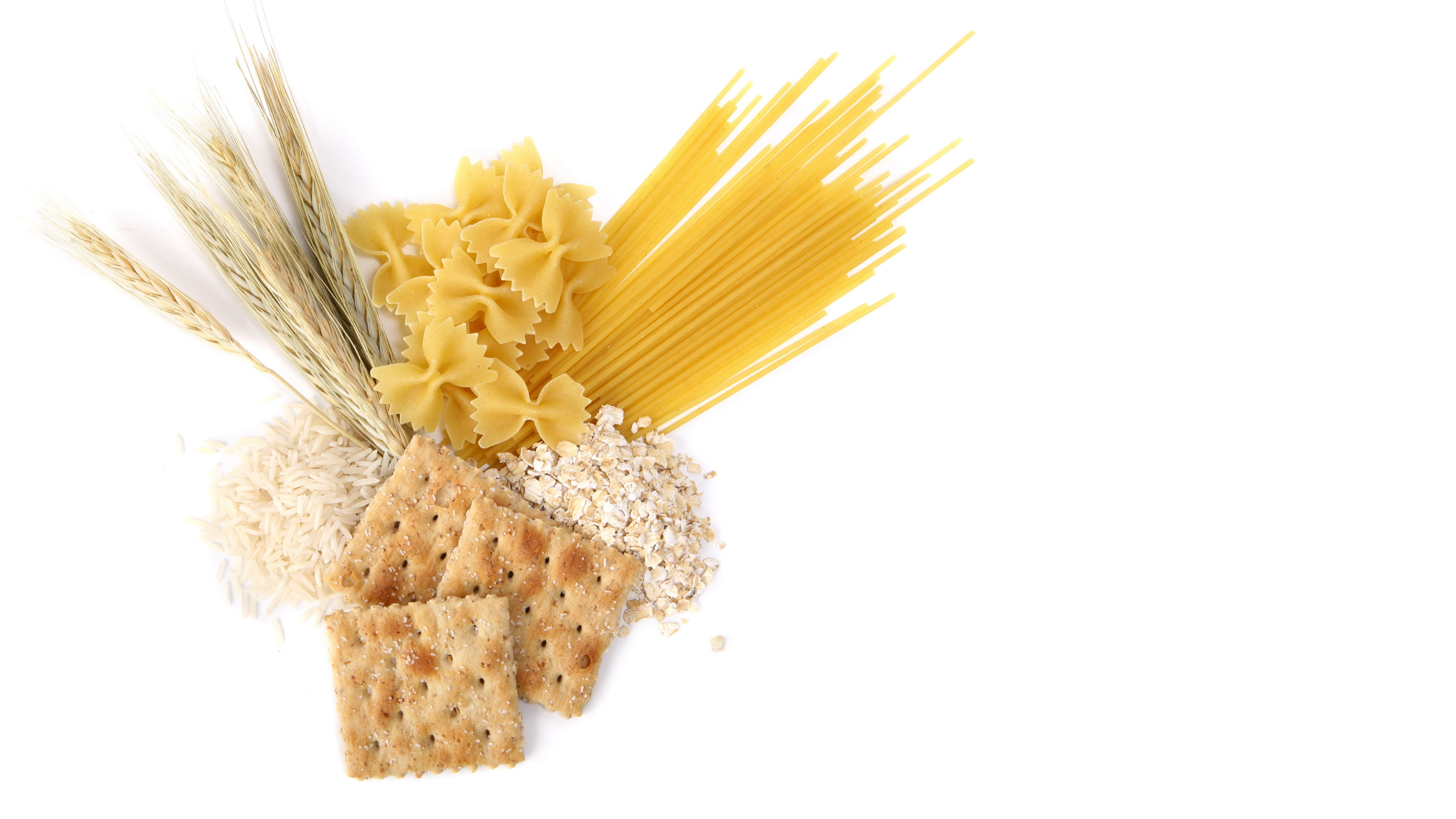
What is ARFID?
ARFID (Avoidant/Restrictive Food Intake Disorder)- it’s not just 'picky eating'
Updated 06/12/2024
What is ARFID? ARFID (Avoidant Restrictive Food Intake Disorder) is an eating or feeding disturbance characterized by extremely selective limitations in the amounts and or types of food consumed. People of all ages can be diagnosed with ARFID, especially when underlying risk factors are present.
ARFID is a relatively new diagnosis that replaced the DSM-5’s “Selective Eating Disorder (SED)” in 2013. Since ARFID is a lesser-known eating disorder, healthcare professionals may not fully recognize it as an eating disorder.
What is the Difference Between ARFID and Anorexia Nervosa?
From a nutritional standpoint, individuals with ARFID face similar health risks as those with Anorexia Nervosa; both diagnoses are primarily characterized by dietary restriction. Also, the very thought of eating foods outside one’s comfort zone can be highly upsetting for individuals with ARFID and Anorexia alike.
What Are ARFID Safe Foods?
However, while dietary restriction in Anorexia Nervosa clients tends to be motivated by body image dissatisfaction and/or fear of weight gain, individuals with ARFID are compelled to avoid certain types of food for reasons unrelated to body image. Dietary restrictions/ avoidances in people with ARFID tend to be sense-based (texture, smell, color, etc.) or arise out of one’s concern over aversive experiences like choking or vomiting.
Some examples of common ARFID “safe foods” are:
- White bread
- Pizza
- French fries
- Sweets
- Chicken nuggets
- Plain noodles
- Crackers
- Cereal
Who Struggles with ARFID?
Individuals of all ages and genders can struggle with ARFID. While this particular eating disorder is most commonly diagnosed in older children and adolescents, this does not mean ARFID occurs less often in adults. It simply means that adults are less likely to seek or receive a proper ARFID diagnosis, whether due to a lack of traditional eating disorder symptoms or low weight loss.
Genetic Risk Factors For ARFID
- ADHD/ADD
- Autism spectrum disorder (this is a risk factor for ARFID and Anorexia)
- Individuals with co-occurring anxiety disorders
ARFID Symptoms & Warning Signs
Common ARFID symptoms and warning signs include:
-
Low interest in the act of feeding or eating
-
“Picky eating”
-
Difficulty chewing food
-
Lack of appetite
-
Social isolation
-
Anxiety in the presence of “fear” foods
-
Vomiting or gagging after exposure to certain foods
- Low energy and malnutrition
-
Avoidance of specific food items as related to sensory features (i.e. texture, color, taste, smell)
-
Food refusal related to aversive or fear-based experience
-
For adults, weight loss; for children, failure to gain weight
Additionally, individuals with Avoidant Restrictive Food Intake Disorder (ARFID) experience extreme aversions toward foods outside their list of safe foods. These aversions can be so intense they elicit strong emotional responses like anxiety, fear, crying, and/or physical reactions like vomiting or choking. As long as they have access to these safe foods, individuals with ARFID experience great difficulty and lack interest in trying other foods.
Potential Health Consequences of ARFID
When an individual struggles with ARFID, they typically do not consume enough calories or essential nutrients the body requires to grow and function properly.
When ARFID is present in children, this lack of nutrients results in stunted weight gain and/or vertical growth. In adults, a lack of nutrients from ARFID can result in problematic weight loss. With little nutrients to rely upon, the body may begin to conserve energy and slow down its processes for normal functioning. This may result in the following health consequences, which can be life-threatening if left untreated:
ARFID and Health Consequences From Lack Of Nutrients
- Electrolyte imbalance/deficiency
- Low blood sugar
-
Kidney and liver failure
- Dizziness and fainting
- Difficulty concentrating and sleeping
- Weakened immune system
- Menstrual irregularities (including period stopping altogether)
- Gastrointestinal issues such as stomach cramps/aches, constipation, acid reflux
- Dry skin
- Brittle nails and hair / thinning hair
-
Bone density loss/osteoporosis
-
Cardiac complications
- Lanugo (fine hair on the body)
- Weak muscles
- Swollen feet
- Cold, mottled hands and feet
- Slowed heart rate
- Abnormal or low hormone, thyroid, potassium levels, or low blood cell count
- Anemia
- Frequent feelings of being cold
- Lethargy
How is ARFID Diagnosed?
According to the DSM-5, the following symptoms must be present for an individual to be diagnosed with an ARFID eating disorder:
- The eating or feeding disturbance manifested by a persistent failure to meet appropriate nutritional and/or energy needs associated with one (or more) of the following:
- Significant weight loss (or failure to achieve expected weight gain/faltering growth in children)
- Significant nutritional deficiency
- Dependence on enteral feeding or oral nutritional supplements
- Marked interference with psychosocial functioning
- The eating disturbance is not attributable to a concurrent medical condition or not better explained by another mental disorder. When the eating disturbance occurs in the context of another mental illness, the severity of the eating disturbance exceeds that routinely associated with the condition or disorder and warrants additional clinical attention.
- The disturbance is not better explained by a lack of available food or by an associated culturally sanctioned practice.
- The eating disturbance does not occur exclusively during the course of anorexia nervosa or bulimia nervosa, and there is no evidence of a disturbance in how one’s body weight or shape is experienced.
ARFID Treatment
Full Avoidant Restrictive Food Intake Disorder (ARFID) recovery is possible. Individuals with ARFID can receive treatment at multiple levels care, depending on symptom severity. Treatment of ARFID often involves medical stabilization, group and individual therapies, nutritional education and support for family members/supportive others. ARFID treatment requires specialized, multidisciplinary care from a trusted treatment team that not only understands the uniqueness of ARFID recovery but is qualified to treat clients’ comorbidities.
ARFID treatment emphasizes nutrition education and experiential practices that promote greater food tolerance. Other standard therapies used to help treat ARFID in adults include exposure therapy, which can help instill positive coping skills and reduce anxiety around certain foods.
Embracing Nutrition With Compassion
Answering the question, “What’s AFRID?” together
Navigating nutrition with ARFID is a journey of patience and understanding. Prioritizing gentle guidance and nurturing a connection with food that respects individual needs and preferences establishes a solid foundation for recovery. Dietitians provide valuable assistance, delivering tailored approaches that respect an individual’s journey toward healing.
Support from Loved Ones in ARFID Recovery
At Alsana, we understand that the journey towards recovery from ARFID is deeply personal and often challenging. It’s a path that requires not just professional guidance but also the unwavering support of loved ones. This support is not just an act of kindness, it’s a vital component of the healing process. It provides the emotional scaffolding that encourages resilience, fosters a sense of community, and nurtures understanding.
When family and friends stand by those navigating ARFID, they offer more than just companionship, they provide a motivational force that celebrates every step forward, no matter how small. This solidarity reminds individuals that they are not isolated in their struggles. It’s a reminder that with every shared meal and every moment of encouragement, recovery isn’t just a possibility—it’s a journey made together.
Holistic ARFID Treatment Programs are Available at Alsana
Alsana offers individualized care for adult ARFID clients of all genders and body types. Call 866-353-9431 or Live Chat to schedule a free assessment and begin your recovery journey today.

JOIN OUR ONLINE SUPPORT GROUP
Weekly meetings
Fridays at noon / PST

Virtual Treatment Options
Meeting each client where they are on their recovery journey. Virtually.
Start the road to recovery with Alsana.





